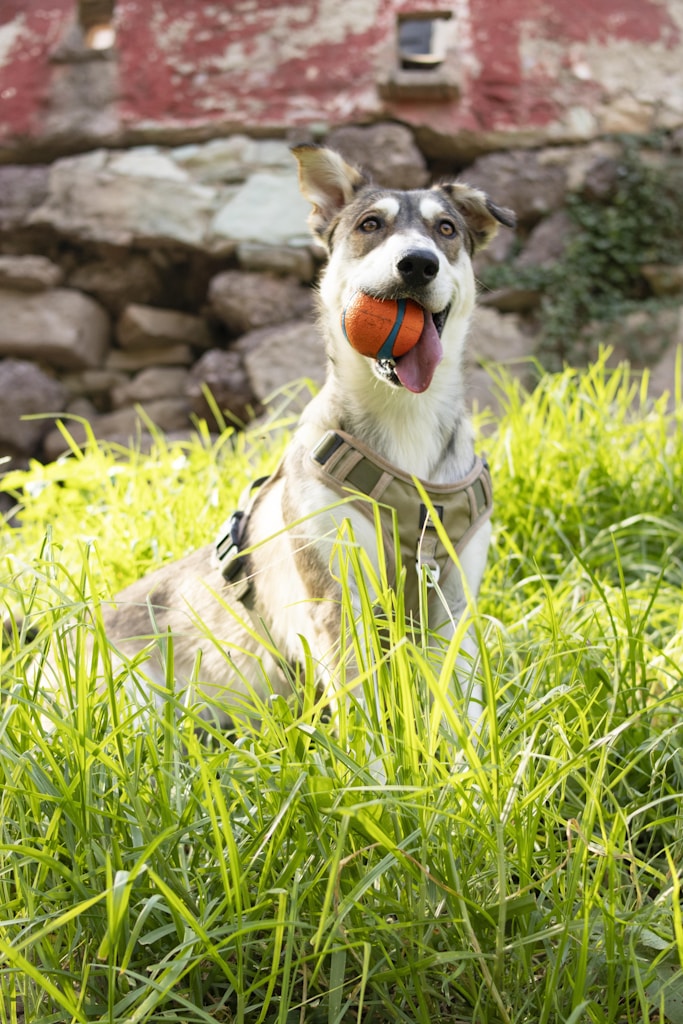The role of pro- and anti-inflammatory cytokines in the pathogenesis of spontaneous canine CNS diseases

Dogs are comparatively frequently affected by various spontaneously occurring inflammatory and degenerative central nervous system (CNS) conditions, and immunopathological processes are a hallmark of the associated neuropathology. Due to the low regenerative capacity of the CNS a sophisticated understanding of the underlying molecular basis for disease initiation, progression and remission in canine CNS diseases represents […]
A canine-derived chimeric antibody with high neutralizing activity against canine parvovirus-2

Canine parvovirus-2 (CPV-2) infection causes serious multisystemic disease in dogs and many animal species worldwide. Previously, a monoclonal antibody (MAb) of CPV-2, 10H4, showed high neutralizing activity and therapeutic effect against CPV-2 in dogs. However, the application of mouse MAb is limited in other animals due to immune rejection. Here, the variable regions of the […]
[Prevention of canine parvovirosis – Part 4: Vaccination failure]

Although vaccines against canine parvovirus (CPV) are used worldwide, CPV infection still occurs relatively commonly, mainly in young dogs. This review article focuses on different causes of vaccination failures. Various factors affecting the dog itself or its environment can be responsible. A subset of dogs fail to develop antibodies (non-responders) or produce only very low […]
Viral Capsid, Antibody, and Receptor Interactions: Experimental Analysis of the Antibody Escape Evolution of Canine Parvovirus

Canine parvovirus (CPV) is a small nonenveloped single-stranded DNA virus that causes serious diseases in dogs worldwide. The original strain of the virus (CPV-2) emerged in dogs during the late 1970s due to a host range switch of a virus similar to the feline panleukopenia virus that infected another host. The virus that emerged in […]
Influence of age and vaccination interval on canine parvovirus, distemper virus, and adenovirus serum antibody titers

Canine core vaccine titer screenings are becoming increasingly popular in veterinary practice as a tool to guide vaccination decisions, despite a lack of supportive, peer-reviewed evidence-based literature. Additionally, it has been suggested that the canine core vaccine duration of host protective immunity can persist past the currently recommended vaccination interval. Thus, this study evaluated serum […]
Canine viral enteritis. Recent developments

Two apparently novel viral gastroenteritides of dogs were recognized in 1978: one caused by a parvo-like virus (CPV) and one by a corona-like virus (CCV). A rotavirus has also been tentatively associated with neonatal pup enteritis. Canine viral enteritis is characterized by a sudden onset of vomiting and diarrhea, rapid spread and high morbidity. Treatment […]
Isolation, cloning and analysis of parvovirus-specific canine antibodies from peripheral blood B cells

B-cell cloning methods enable the analysis of antibody responses against target antigens and can be used to reveal the host antibody repertoire, antigenic sites (epitopes), and details of protective immunity against pathogens. Here, we describe improved methods for isolation of canine peripheral blood B cells producing antibodies against canine parvovirus (CPV) capsids by fluorescence-activated cell […]
The global spread and replacement of canine parvovirus strains

Canine parvovirus type 2 (CPV-2) became widespread during 1978 and was reported in many countries during 1978 and 1979. Earlier studies showed that CPV-2 was replaced in the U.S.A. around 1980 by an antigenically and genetically variant virus (CPV-2a). Here we show that CPV-2 was present in the U.S.A., Japan, Belgium and Australia prior to […]
Maternally derived immunity to canine parvovirus infection: transfer, decline, and interference with vaccination

Antibody to canine parvovirus (CPV) was transferred from an immune bitch to her pups through the placenta and colostrum. Colostral transfer accounted for approximately 90% of the maternally-derived CPV antibody. After suckling, pups and hemagglutination-inhibition titers that averaged 50% of their dam’s titer. Maternally derived CPV antibody declined with a half-life of 9.7 days. Pups […]
Antigenic relationships between canine parvovirus type 2, feline panleukopenia virus and mink enteritis virus using conventional antisera and monoclonal antibodies

Abstract The antigenic relationships between three similar parvoviruses, canine parvovirus type 2 (CPV), feline panleukopenia virus (FPV) and mink enteritis virus (MEV) were investigated. Antisera against all 3 viruses and monoclonal antibodies (mAb) to CPV were prepared and the viruses compared using several serological methods. When conventional sera were used in the hemagglutination-inhibition and agar […]
